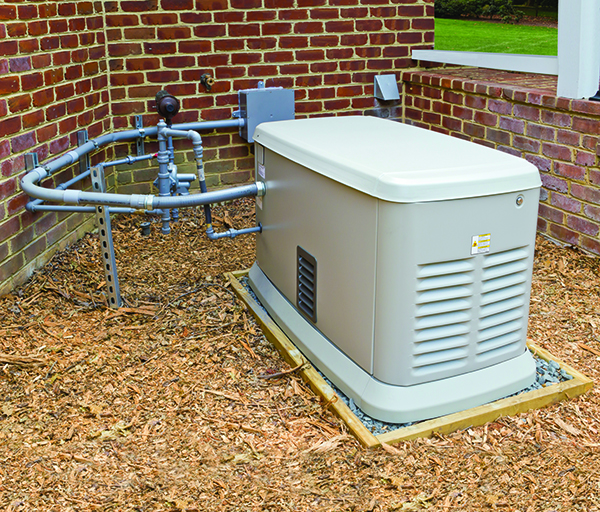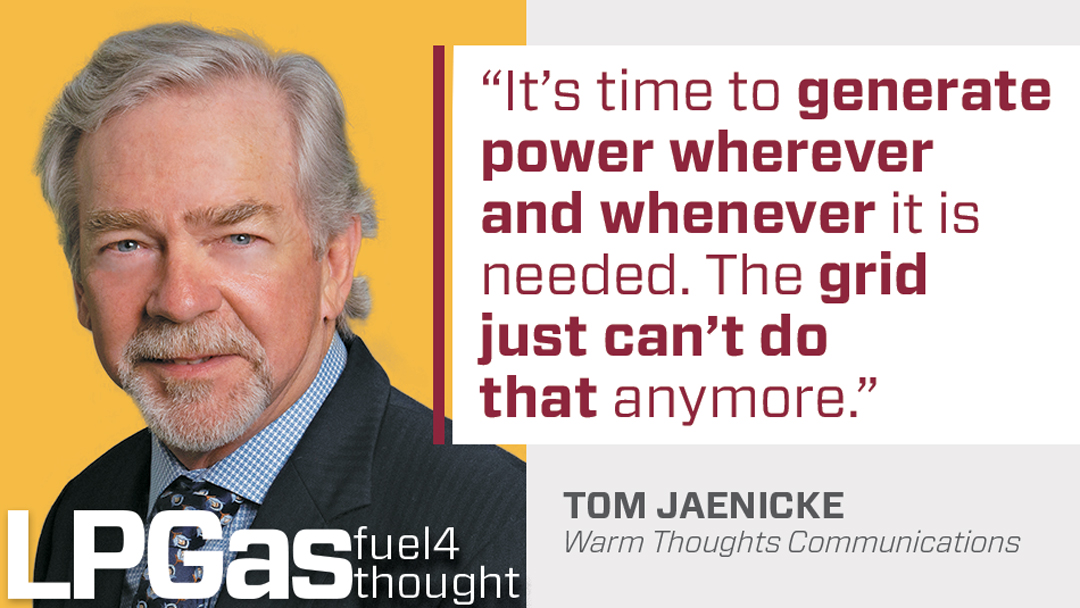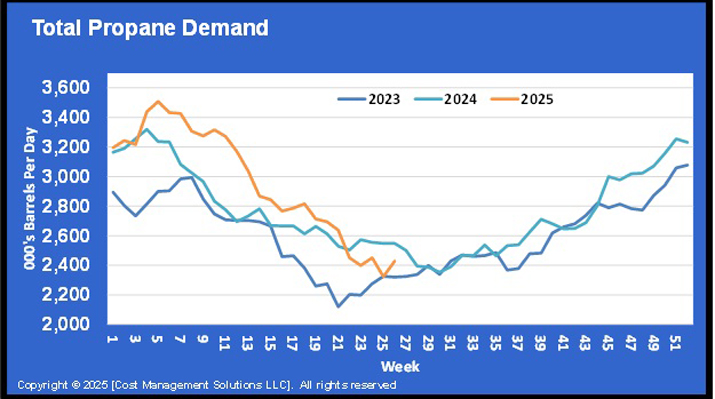Embrace ‘grid anxiety’ opportunities
Our neighborhood just went through a 20-hour power outage, following a similar event last month.
Fortunately, I have a modest-sized standby generator that is large enough to power everything in my home. My space heating, water heating, clothes drying and cooking needs are handled by propane, so the size of the generator is modest in comparison to the standby power needs of an all-electric home.
Just like me, the average consumer does not want to go without electricity for any length of time. Let’s call it “grid anxiety,” comparable to the driving range anxiety of electric vehicle owners. It is time for propane retailers to embrace the opportunities that grid anxiety is creating.
Standby generators

Propane’s role as a reliable backup power source is one of the many positive messages the industry can share in conversations. (Image: dsmoulton/iStock / Getty Images Plus/Getty Images)
Propane standby generators can bring new gallons and profit to you, whether the gallons are added to existing propane usage in the home or the generator is a stand-alone propane usage point. It all depends on how you equip yourself to handle the sale.
Some propane retailers sell, install and service propane standby generators, along with other power generation products. Others choose to partner with local electricians for the installations, and some only hook up to generators sold and installed by others.
In any case, you should welcome standby generator usage. You will get exercise gallons as the generator test runs periodically, and propane usage surges during power outages. On stand-alone generator installations, you have the choice of selling the propane tank and installation materials to the customer or charging them a significant annual rent fee that can include fuel level monitoring.
Sometimes, homeowners will consider adding other propane appliances such as tankless water heaters to stand-alone generator installations to lower electricity demand, allow the downsizing of the generator being installed and, in turn, give you greater propane throughput. Consumers are willing to pay well for grid anxiety relief.
Mobile power
Mobile towable power generation for construction sites, portable lighting applications, special event venues and many other off-grid, short-term power needs has been a diesel fuel captive for years, but now the market is turning in favor of propane. Mobile towable propane power is cleaner, quieter and more affordable than diesel-powered generator units and is a hands-down first choice over diesel where it is offered.
The Propane Education & Research Council (PERC) was instrumental in working with generator manufacturers to develop propane-fueled mobile towable power generators, and it took a while for the market to realize the value of using propane. A few early adopter propane marketers are recognizing the potential of this market. Some marketers are purchasing propane mobile generators and starting a rental business, while others are working with local rental companies to provide fuel to their propane rental units. Some propane marketers who were already in the construction heater rental business have added mobile towable propane generators to their rental offerings.

Cogeneration
Not far behind propane standby and mobile power in market acceptance is cogeneration, often referenced as combined heat and power (CHP). Propane-powered CHP uses a propane engine or power station to generate on-site power and useful heat, otherwise wasted, at the same time. This heat or thermal energy can be applied primarily to facility space heating and hot water needs.
CHP energy production is more efficient than conventional technologies. A CHP unit can power a single building, or a district energy source, also known as a microgrid, can provide energy to multiple end users. CHP is already used in several thousand buildings across the U.S. Grid anxiety will only accelerate consumer interest in CHP. Learn about CHP opportunities at propane.com.
Your facility
Last, remember that being a reliable energy provider means your propane facilities must be storm-ready with backup power for customer and employee communications, truck loading and overall operations during power outages. Don’t let grid anxiety turn into propane anxiety by letting down your customers when they need you the most.
It’s time to generate power wherever and whenever it is needed. The grid just can’t do that anymore.
Tom Jaenicke is vice president of propane marketing services for Warm Thoughts Communications. He can be reached at tjaenicke@warmthoughts.com or 810-252-7855.
















